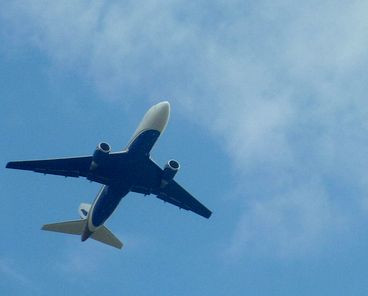Traveler's alert: Business travel linked to obesity and poor health

Road warriors who travel for business two weeks or more a month have higher body mass index, higher rates of obesity and poorer self-rated health than those who travel less often, according to researchers at Columbia University's Mailman School of Public Health.
The study, conducted by Andrew G. Rundle, DrPH and Catherine A. Richards, MPH, drew data from medical records of more than 13,000 employees in a corporate wellness program provided by EHE International. Nearly 80% of employees traveled at least one night a month and 1% traveled more than 20 nights a month. Findings are online in the Journal of Occupational and Environmental Medicine.
Overall, the researchers found that business people who traveled the most (20 or more days a month) have poorer health on a number of measures compared with those who travel between 1 and 6 days a month. For example, extensive travelers:
* Had a mean Body Mass Index (BMI) of 27.5 kg/m2 versus 26.1 for light travelers
* Had a mean HDL level of 53.3 mg/DLversus 56.1 for light travelers
* Had a mean Diastolic pressure of 76.2 mmHG versus 74.6 for light travelers
* Were 260% more likely to rate their health as fair to poor compared to light travelers
Employees who did not travel at all also scored poorly on health measures. For example, non-travelers were about 60% more likely than light travelers to rate their health as fair to poor and had a mean body mass index of 26.7 kg/m2. According to the authors, poor health among non-travelers may reflect a "healthy worker effect," with employees who have health problems being less likely to travel.
"Consistently we found that health outcomes were worse for those not traveling and those traveling the most," said Catherine Richards, doctoral candidate in the Mailman School Department of Epidemiology and first author. "And while the differences in clinical values for diastolic blood pressure and HDL were small, the results for self rated health are of concern because this simple measure is a very robust predictor of mortality. Similarly, the associations between business travel and obesity are noteworthy because of the many negative health consequences of this condition."
The authors note that 81% of business travel is done in personal automobiles, which is associated with long hours of sitting and a high probability of poor food choices.
While research to date has associated business travel with infectious disease health risks, this is the one of the first studies to report the effects of business travel on health risks associated with cardiovascular disease.
According to Dr. Rundle, associate professor of Epidemiology and senior author, the analyses represent an important first step in investigating the associations between chronic health conditions and business travel, suggesting that individuals who travel extensively for work are at increased risk for health problems and should be encouraged to monitor their health. "Should further research substantiate a link between business travel and obesity and other chronic disease health outcomes, there are several possibilities for workplace interventions. Employee education programs and strategies to improve diet and activity while traveling are a simple start."



























